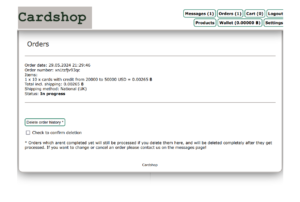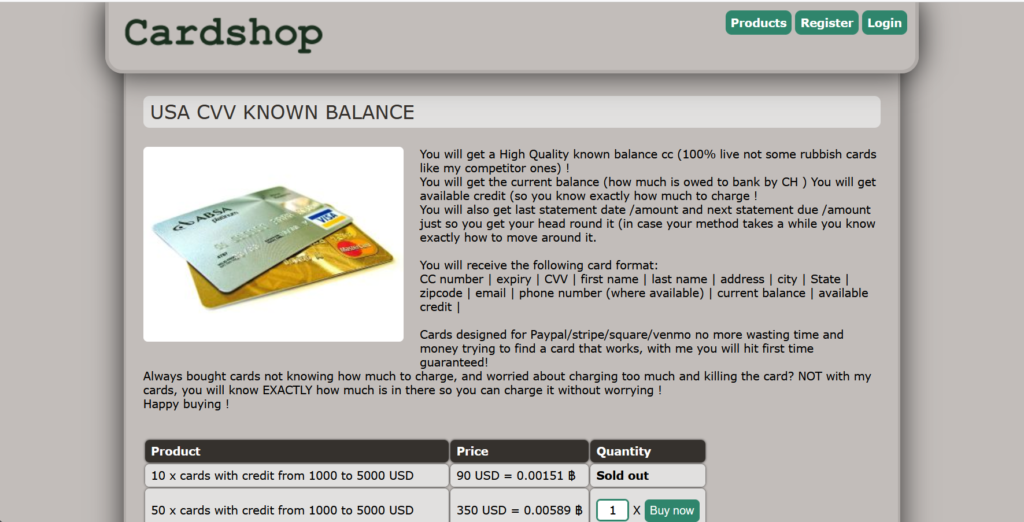Table of Contents
Togglecardshop-USA cvv – TOR Scam Report (2)
Onion Link: http://f6wqhy6ii7metm45m4mg6yg76yytik5kxe6h7sestyvm6gnlcw3n4qad.onion
Scam Report Date: 2024/06/03
Client Scam Report Breakdown
Original Report Summary:
The scam report details a fraudulent experience where a customer was deceived into purchasing a set of credit card details from an online marketplace specializing in illicit card sales. The customer, enticed by the offer of “high-quality” credit card information with known balances, spent $200 on the promise of receiving valid and usable cards. The product description from the scammer’s website claimed that the cards were of superior quality, offering precise details about current balances, available credit, and even last statement amounts to ensure that buyers could maximize their illegal activities without inadvertently depleting the card’s funds. However, upon purchasing, the customer found themselves without any support or means of contact, indicating that the entire operation was a scam. The product, marketed as “high-quality” and “guaranteed to work,” was evidently a facade designed to lure in unsuspecting buyers, with no intention of delivering the promised goods.
Photos:

Definitions and Terminology
The scam report contains several key terms and jargon that are essential to understanding the nature of the fraudulent operation. Firstly, “CVV” refers to the Card Verification Value, a three- or four-digit code used to verify the identity of the cardholder during transactions, particularly for online purchases. This code is critical for securing transactions, which is why it is highly sought after in the black market for stolen card data. The term “non-AVS” (Address Verification System) indicates that the cards sold by the scammer do not require the buyer to match the billing address, making them more flexible for fraudulent use. The mention of “BIN” refers to the Bank Identification Number, which is the first six digits of a credit card number used to identify the issuing bank or institution. These details are particularly attractive to criminals looking to conduct carding—a form of fraud where stolen credit card information is used to purchase goods or services online. The scammer’s site further emphasizes the availability of cards from multiple countries, highlighting the global scope of this illegal marketplace.
Analysis of the Fraudulent Operation
The operation described in the scam report illustrates a sophisticated yet fraudulent business model designed to exploit individuals involved in illegal activities. By offering detailed information about the credit cards, including balances and statement dates, the scammer targets buyers who intend to use these cards for carding or other forms of financial fraud. The price tiers, ranging from $90 for a batch of cards with low credit limits to $800 for those with high balances, indicate a well-structured pricing strategy aimed at different levels of illegal operations. However, the lack of a communication channel, as mentioned by the victim in the report, is a significant red flag that underscores the fraudulent nature of the operation. The scammer’s promise of guaranteed functionality (“you will hit first time guaranteed”) is another tactic to instill confidence in the buyer, only to leave them stranded once the payment is made. The use of Bitcoin as a payment method further complicates any recourse for the victim, as this cryptocurrency is often used in illicit transactions due to its relative anonymity and difficulty in tracing. Overall, the scam report exposes a deceptive scheme that preys on individuals engaging in illegal activities, ultimately leaving them defrauded and with no means of recovery.







